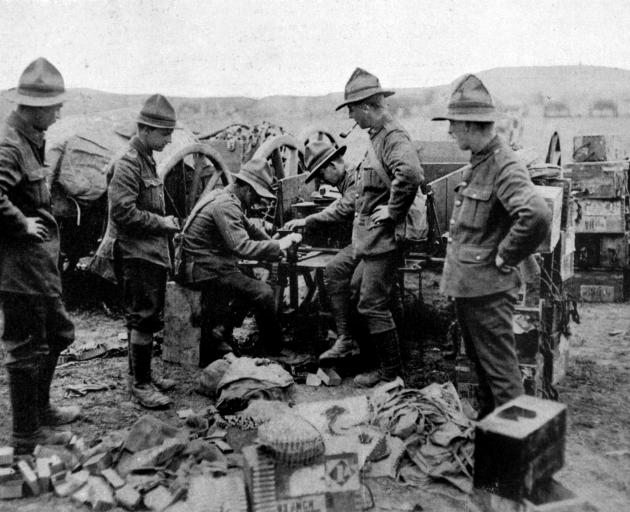
Sir Douglas Haig is able to announce the rapid achievement of important results, gained against positions of formidable strength.
On a twenty mile front the British have pushed forward some miles; a portion, if not the whole, of Lens, an important town, and Quent are in their hands; and they have secured an additional harvest of prisoners to the number of ten thousand.
The official German report attributes to the pressure exerted by ``superior forces'' the defeat which it is impossible to disguise. It is a new experience in this war, in which the enemy has made ruthless sacrifices in the hope of accomplishing his aims, that he should have to confess the numerical superiority of his opponents.
Swarms of prisoners
London: The United Press correspondent states: Thousands of German prisoners are swarming down the roads behind our advance like sheep. Such disheartened masses of captives have seldom been seen since the war began. The Germans in the front line ran screaming before the first assault, throwing up their hands.
They admit that the Germans are beaten. But this does not mean that today battle is a triumphant parade for the Canadian, English, and Scottish troops. On the contrary, some of the hardest fighting recorded for months occurred before this important stretch of the Hindenburg line could be reported to be crossed.
The Germans threw in great masses to stop the gaps, and fought murderously at some points. But the German masses contained elements of fatal weakness, including worn-out divisions from Bapaume and Bullecourt. Further German masses are still coming up, and machine-gun fighting still remains.
Closing pubs to troops
A new hotel-closing regulation provides that before, upon or after the arrival at the ports of Auckland, Wellington, Lyttelton, or Dunedin (including Port Chalmers) of an overseas vessel carrying troops the Commissioner of Superintendent of Police, upon receipt of a requisition form the Minister of Defence, may publish a notice ordering all licensed premises situated within the area specified in the notice to be closed.
In the cases of Auckland, Wellington, and Dunedin the following area may be specified-viz, and an area having a radius of 15 miles from the chief post office in the cities of Auckland, Wellington, and Dunedin, as the case may be. In the case of the arrival of a vessel at Lyttelton an area having a radius of 15 miles from the chief post office, Christchurch.
Reducing train stops
At a meeting of the Kaitangata Borough Council on Tuesday evening the Mayor and Cr Gage were deputed to interview the district traffic manager of the railways with the request that the morning Clinton-to-Dunedin and the evening Dunedin-to-Clinton trains be made express trains between the stations of Dunedin and Mosgiel.
It was considered that travellers to stations between Dunedin and Mosgiel were abundantly catered for on the railways.
- ODT, 5.9.1918
COPIES OF PICTURE AVAILABLE FROM ODT FRONT OFFICE, LOWER STUART ST, OR WWW.OTAGOIMAGES.CO.NZ












